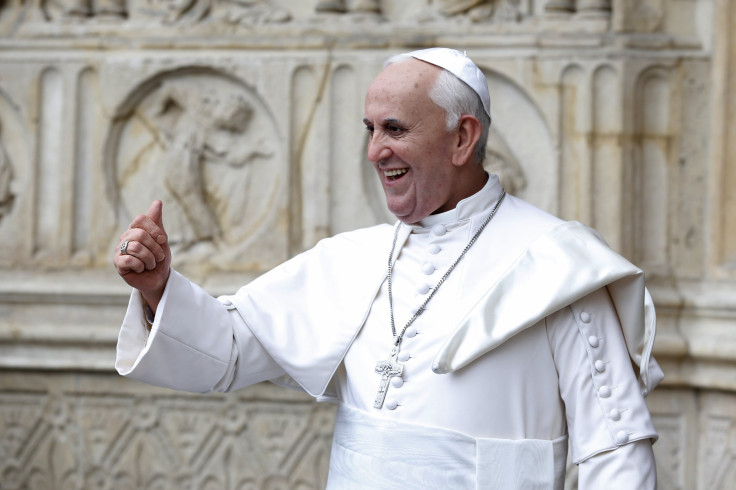Pope Francis says Catholic priests may forgive women who had abortions and doctors who performed procedure

No one is exempt from the mercy of the Lord -- this is the clear message that Pope Francis, head of the Roman Catholic church, relays to all members of the community.
In a letter to Archbishop Rino Fisichella, which was released by the Vatican Tuesday, the pontiff wrote to the President of the Pontifical Council for the Promotion of the New Evangelization that starting Dec. 8, in celebration of the Holy Year of Mercy, priests are allowed to absolve women who have had abortions if the latter seek forgiveness. The Pope noted that he is aware of the moral and existential ordeal that women go through toward making this decision, so he gives the priests the power to use their discretion to offer absolution.
"The forgiveness of God cannot be denied to one who has repented, especially when that person approaches the Sacrament of Confession with a sincere heart in order to obtain reconciliation with the Father," the Pope said in his letter. In March, the pontiff said that the Holy Year of Mercy, which runs until Nov. 20, 2016, is the Catholic Church's way of promoting inclusiveness in a way that highlights its mission to "be a witness of Mercy." The special year's motto, "Merciful Like the Father," is seen as an invitation for all to follow the Lord, "who asks us not to judge or condemn but to forgive and to give love and forgiveness without measure."
The National Catholic Reporter writes that 2016 will see the celebration of several jubilees, including the jubilee for consecrated men and women on Feb. 2, the jubilee for the devoted to the Divine Mercy on April 3 and a jubilee for workers and volunteers of mercy on Sept. 5, or the feast day of Blessed Mother Teresa of Kolkata.
In the same press release, Pope Francis also called out to those who have limited access to the church, such as the sick and elderly who are often confined to their homes, and those in prison to seek indulgence. He said that he prays for those in jail to seek God, whose mercy is "able to transform hearts, and is also able to transform bars into an experience of freedom."
In the United States, many Catholic priests have already been granted the power to absolve sins related to abortion, writes New York Times . Rev. James Martin, a Jesuit priest, said in an interview with CNN that what the pontiff is doing is extending the church's mercy and "universalising" it.
The Year of Mercy is a centuries-old Catholic practice during which believers of the faith are allowed to receive special indulgences for their sins. More information about the Jubilee of Mercy is available on its official website, which is translated in seven languages.
Contact the writer of this story at feedback@ibtimes.com.au or let us know what you think below.






